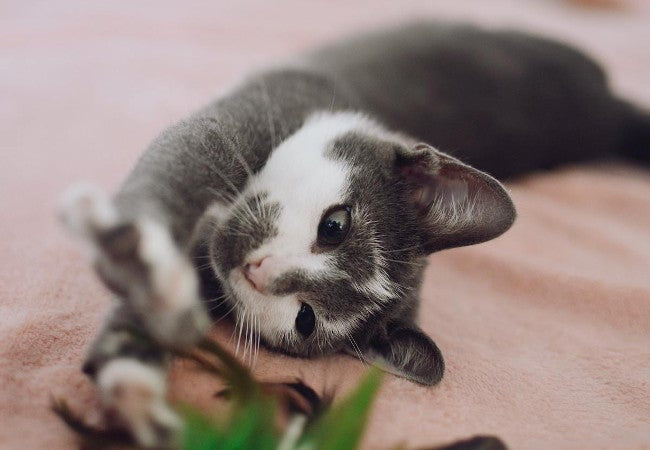Allergies in cats manifest when their immune system overacts to substances in their environment. Some cats with allergies can be affected by more than one allergy simultaneously.
Cats can develop three main types of allergies:
- Environmental
- Food
- Flea
Substances that make up these allergen categories include:
- Pollen, grass, mold, mildew, and dust mites
- Household cleaning products
- Perfume or cologne
- Food
- Flea
If your cats have allergies, they'll probably exhibit one or more of these symptoms:
- Itchy skin
- Itchy and runny eyes
- Sneezing, coughing, wheezing
- Snoring
- Vomiting
- Diarrhoea
- Swollen paws
Pollen
Pollen is released by trees, grasses, and weeds, and can enter houses on your clothes and through open windows. Some cats will have an improper immune response to inhaling or coming into direct contact with pollen that triggers an allergic reaction. Pollen allergies differ in severity from cat to cat, and their symptoms may vary.
Household allergens
Cats can also be allergic to indoor allergens like mold, dust, and mites. The best way to reduce the allergies is to remove offending allergens from your home. Maintain a clean, dust-free home and regularly bath your cats. Talk to your vet for a shampoo recommendation, as frequent bathing can also dry out the skin.
Household cleaning products
Many household cleaning products contain strong chemicals which your cats can accidentally ingest by cleaning themselves after contact. To reduce the likelihood of an allergy attack, make sure your cats are safely out of the way whilst you clean, and try to use natural cleaning products, such as vinegar or lemon.
Perfume
Some cats are so sensitive to perfume that it takes the form of an allergy. The obvious way to prevent your cats from this particular allergy is to stop wearing perfume or cologne and reduce the amount of scented sprays you use around the home.
Food
Food allergy may show up in cats at any age and most frequently develops in response to the protein component found in beef, chicken, dairy, wheat, eggs, or fish. If you suspect your cats have a food allergy, they will need to be put on a prescription or hydrolyzed protein diet. Once they are diagnosed, your vet will recommend specific foods or a home-cooked diet.
Flea
Flea allergy is the most common type of cat allergy. Just one bite causes such intense itching, and chewing often leads to hair loss and open sores or scabs, which results in a secondary bacterial infection. The most important treatment for flea allergy is to eliminate all fleas. Therefore, strict flea control is the backbone of successful treatment. Your vet should also be able to give your cats protection from fleas in the form of tablets or injections.
There is no way to prevent cats from developing allergies, but you can often help to limit their exposure to allergens. It is also best to consult with your vet, if you notice signs of allergies in your cats.
Source: PetMD
Featured image by Crina Doltu

